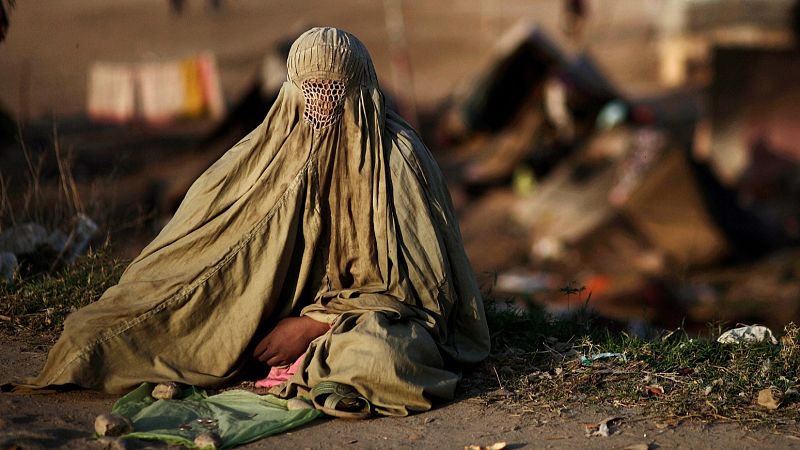Portuguese parliament approves ban on wearing face veils in public spaces

Portugal's parliament has approved a bill banning face veils worn for “gender or religious” reasons in public, in a move seen as targeting the face coverings worn by some Muslim women.
The bill was proposed by the far-right Chega party, and received support from the centre-right PSD, Liberal Initiative and CDS-PP. Left-leaning lawmakers, including from the PS, Livre, PCP and Bloco de Esquerda parties voted against the initiative.
The measure prohibits the "use, in public spaces, of clothing intended to conceal or obstruct the display of the face", as is the case with the burqa — a full-body garment that covers a woman from head to foot — and niqabs — the full-face Islamic veil with space around the eyes.
It also prevents the act of "forcing someone to hide their face for reasons of gender or religion", the parliamentary initiative reads.
Exceptions include when facial concealment "is duly justified for health reasons or professional, artistic, entertainment or publicity reasons".
The ban also "does not apply on airplanes or in diplomatic and consular premises", and "faces can also be covered in places of worship and other sacred places."
Also excluded from the ban is "the concealment of the face for reasons related to security or due to climatic conditions, or whenever this results from a legal provision that allows it".
The law will now be debated in the parliamentary committee on Constitutional Affairs, Rights, Freedoms and Guarantees, where it may also be amended. After that, it will return to plenary for the final overall vote.
President Marcelo Rebelo de Sousa still has to approve the bill. He could veto it or send it to the Constitutional Court for review.
The measures would then apply to all public spaces, including "public roads, as well as places open to the public, used for public service", as well as "in all places where services generally accessible to all citizens are provided". They also extend to "sporting events or practices and demonstrations".
Fines set to start at €200
Those who fail to comply with the new rules could face fines of between €200 and €2,000, "in the event of negligence". In cases of wilful misconduct, fines could reach to between €400 and €4,000 euros.
Furthermore, anyone who "by threat, violence, constraint, abuse of authority or abuse of power, because of their sex, forces one or more people to hide their face", could face a prison sentence of up to three years or a fine, if there are no aggravating factors.
Chega calls for "respect" for Portuguese customs
During this Friday's parliamentary debate, Chega leader André Ventura said that "whoever arrives in Portugal, wherever they come from, whatever region they come from, with whatever customs and religion they have, must comply with, respect and ensure that the customs and values of this country are respected", thus justifying the presentation of the bill.
Representing the Socialist Party, MP Pedro Delgado Alves accused the "extreme right" of fuelling "direct hatred towards these communities", which he considered also "have the right to be respected".
The PSD, the party that leads the government, expressed its "willingness to go down this road" proposed by Chega, although it noted that "the text presented can and should be perfected in specialised discussions".
Chega cited France and other European Union countries' rationales for banning face coverings commonly worn by Muslim women.
If signed into law, Portugal would join a number of European countries such as Austria, France, Belgium and the Netherlands who have full or partial bans on face and head coverings.
Today

